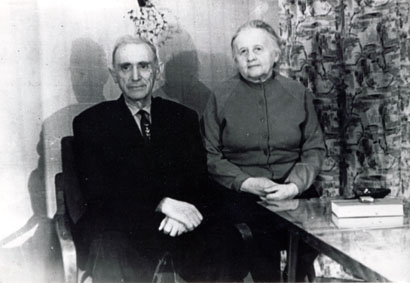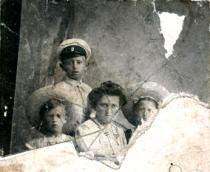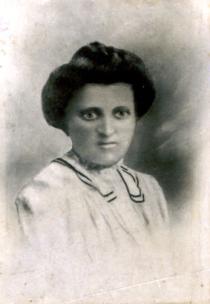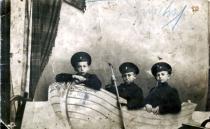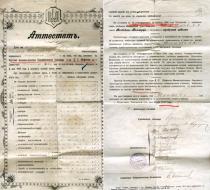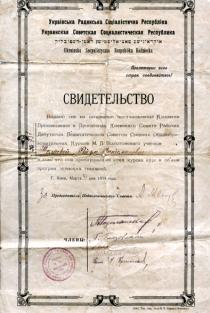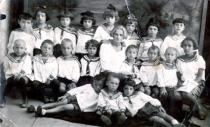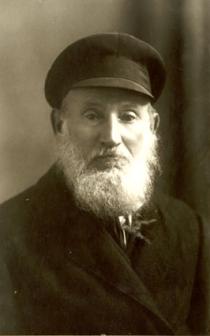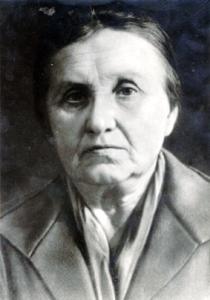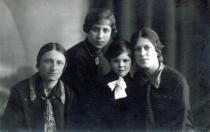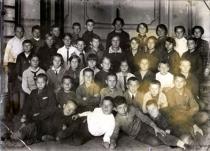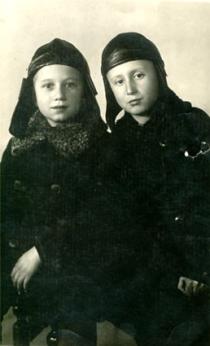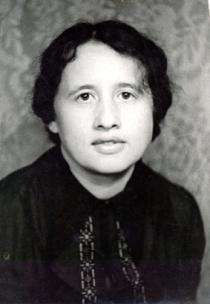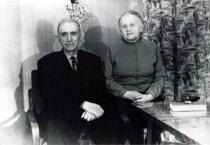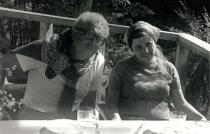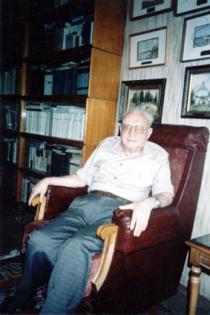My mother Rosa Shlifer and my father Iosif Shlifer in Kiev in late 1960s. My father is severely ill. This is his last photograph.
In 1949, at the height of state anti-Semitism and during the campaign against cosmopolitans my father was arrested in Tashkent and sentenced under a political article of the law. My mother wrote me that he was charged of espionage for Germany and nonsense like that. I understood that my father was innocent. I knew this was a state policy against Jews, but what could I do? I knew that my management had to know about my father's arrest, but they showed no sign of this and I pretended nothing happened. My father never told me about what he was accused of. They might have remembered his Bund membership. To tell the truth, they didn't beat him. They used another thing: they kept him in solitary confinement for the first year. Then his friends managed to help him and my father was taken to a camp near Tashkent. My father actually performed the duties of chief accountant in the camp. He had a privilege: he was allowed to sleep on the sofa in his office instead of going back to the barrack. Besides, he made reports to the bank management. They spoke to him rather than calling an official chief accountant. My father went to the bank with a guard and my mother was waiting there for him with hot lunch. Then my mother moved to Kiev. My father was released in 1954, a year after Stalin died. He was exculpated from all charges.
In 1954 I went to Moscow to pick up my father. He came to Moscow after he was released and stayed with his distant relative that was a rabbi in a synagogue in Moscow. My father was eager to go to the Mausoleum to see Stalin: imagine this devotion and faith after all he had to go through! Until the end of his days he thought that his arrest was a tragic mistake. My father said he wasn't going home until he saw Stalin. We had to stand in a long line and my father calmed down after he saw dead Stalin.
In Kiev we lived together for some time and then my father received a two-room apartment. My mother and father moved to that apartment. My father went to work as chief accountant at the weaving mill. His arrest and stay in a single cell change my father dramatically. A cheerful man that he was changed to a withdrawn and despondent man. He began to pray. He didn't pray in the Jewish manner. I don't think he had a tallit or knew any prayers. He said his own prayers and prayed to his god that he got to know when he was in his cell. Sometimes he went to synagogue, but he didn't pray there. He just sat there quietly. In 1960s my father got severely ill. He had lymphogranulomatosis that was incurable. He consulted doctors in Kiev and Moscow, but they offered no cure. My father died in 1970. My mother lived many years longer. She died in 1986.
